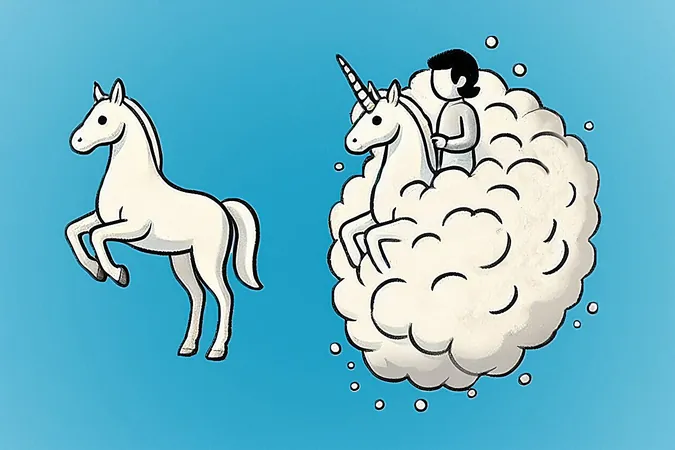
Is TikTok Protein Craze Worth It? Here's What You Need to Know!
2025-04-03
Author: Noah
In the fast-paced world of wellness trends, one obsession has taken TikTok by storm: protein. Videos showcasing protein-packed meals and tips on maximizing protein intake flood social media, advocating for high protein consumption as a key strategy for weight management and overall health.
Grocery stores are responding to this trend, with aisles filled with protein bars, shakes, supplements, and even protein-enriched variations of everyday foods. But just how much protein do we really need, and is this protein frenzy justified?
Understanding Protein Types
Protein, a crucial macronutrient, comprises amino acids essential for bodily functions. These amino acids can be divided into:
- **Essential Amino Acids**: These cannot be synthesized by the body, making dietary intake necessary.
- **Non-Essential Amino Acids**: These can be produced by the body.
While animal products like meat, eggs, and dairy come to mind when we think of protein, there are many plant-based sources such as legumes, nuts, seeds, and soy products that are rich in essential amino acids.
The Importance of Protein
Often referred to as the 'workhorses of life,' proteins are integral to numerous bodily processes, including:
- **Building and Repairing Tissues**: Proteins aid in the growth and recovery of muscles, bones, skin, and nails.
- **Immune Function**: Antibodies—types of proteins—help fend off infections.
- **Transporting Substances**: Proteins move key nutrients and oxygen throughout the body.
- **Regulating Biological Processes**: Many hormones that control functions like metabolism are proteins.
- **Catalyzing Chemical Reactions**: Enzymes, which are proteins, facilitate essential reactions, including digestion.
- **Energy Source**: Although not the primary energy source, protein can be used for energy when necessary.
Additionally, sufficient protein intake is vital for effective weight management by enhancing feelings of fullness, decreasing cravings, supporting muscle mass, and boosting metabolism through its thermic effect.
How Much Protein Do We Really Need?
The amount of protein we should consume varies based on factors like body weight, age, and gender. Generally, protein should comprise 15-25% of our total caloric intake.:
- Women: 0.75 grams per kilogram of body weight (1.0 grams if pregnant or breastfeeding).
- Men: 0.84 grams per kilogram of body weight.
For example, a 72-kilogram woman should aim for around 54 grams of protein per day, while an 87-kilogram man would require about 73 grams.
As we age, protein needs may increase by about 25% for adults over 70 years old to counteract muscle loss and maintain metabolic health.
Practical Protein Intake
Incorporating a protein source in every meal can help you meet daily protein goals. Here’s an example of a balanced day:
- **Breakfast**: Chickpea scramble (1.5 fist-sized portions of protein)
- **Morning Snack**: Greek yogurt and a handful of nuts
- **Lunch**: Beef stir-fry (1 fist-sized portion of protein)
- **Afternoon Snack**: Hummus with veggies and one boiled egg
- **Dinner**: Lentil and beef Bolognese alongside a salad (0.5 fist-sized portion of protein)









 Brasil (PT)
Brasil (PT)
 Canada (EN)
Canada (EN)
 Chile (ES)
Chile (ES)
 Česko (CS)
Česko (CS)
 대한민국 (KO)
대한민국 (KO)
 España (ES)
España (ES)
 France (FR)
France (FR)
 Hong Kong (EN)
Hong Kong (EN)
 Italia (IT)
Italia (IT)
 日本 (JA)
日本 (JA)
 Magyarország (HU)
Magyarország (HU)
 Norge (NO)
Norge (NO)
 Polska (PL)
Polska (PL)
 Schweiz (DE)
Schweiz (DE)
 Singapore (EN)
Singapore (EN)
 Sverige (SV)
Sverige (SV)
 Suomi (FI)
Suomi (FI)
 Türkiye (TR)
Türkiye (TR)
 الإمارات العربية المتحدة (AR)
الإمارات العربية المتحدة (AR)